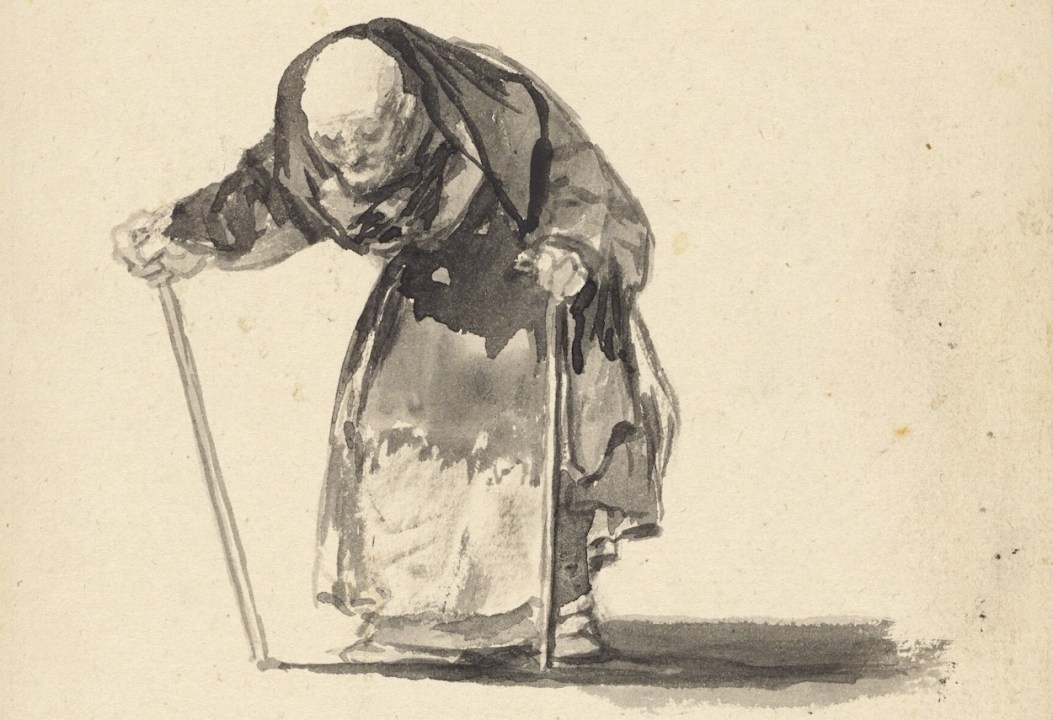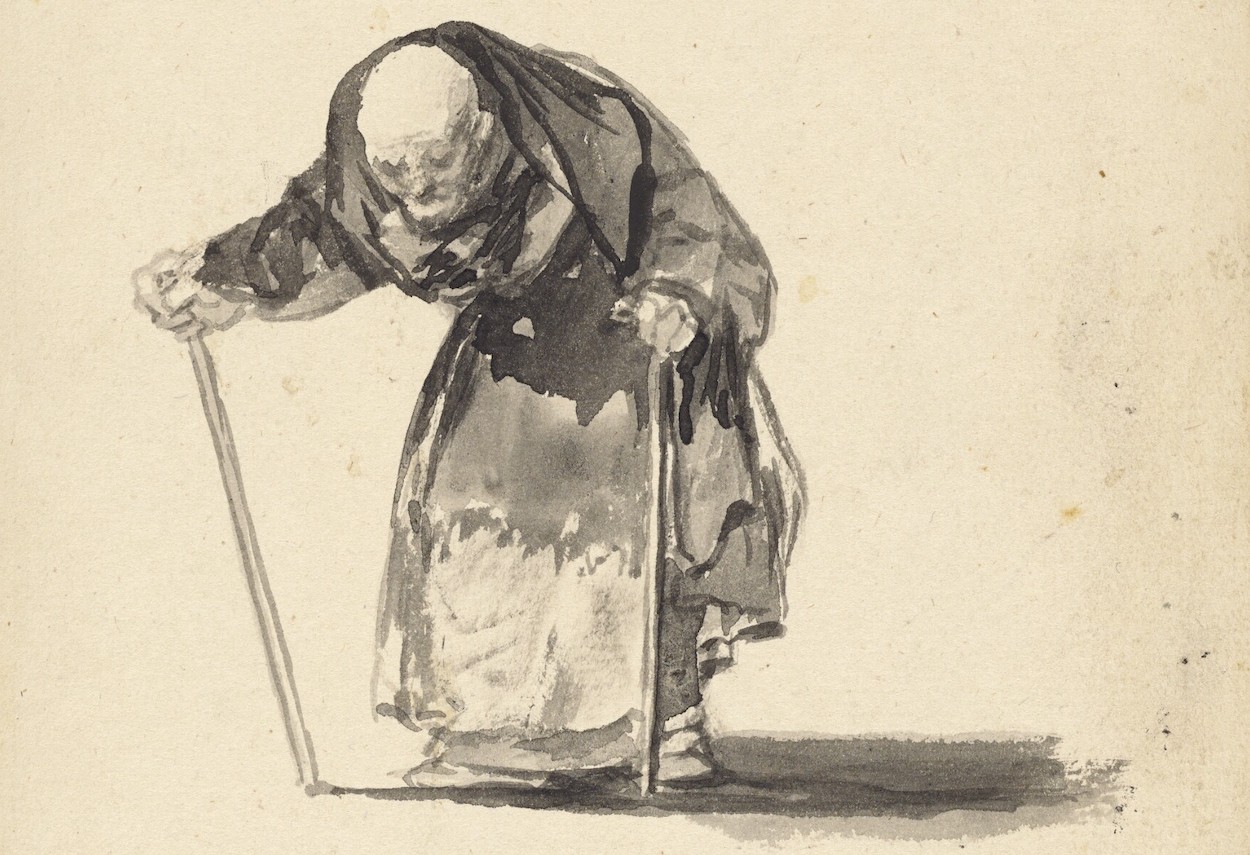María Branyas Morera, aged 117, is the oldest person in the world. She was born in California on 4 March 1907 to Spanish parents who decided to return home in 1915. The voyage was an early lesson in adversity: her father died and María lost the hearing in one ear after she fell from the upper deck. The family settled in Catalonia and María worked as a nurse during the Spanish Civil War. After contracting pneumonia in 1993, she moved into a nursing home in Olot, some 70 miles north of Barcelona. There she played the piano until she was 108 and recovered from Covid-19 in 2020.
A resilient, pragmatic approach to adversity and rapidly changing circumstances also helps
María is one of about 20,000 centenarians in Spain. Many are from the sparsely populated central and north-western regions including the province of Ávila where I live. My sister-in-law’s grandfather died aged 108 a few years ago. The village of Dozón in Galicia has a population of just over one thousand of whom 13 are centenarians.
Recently the remarkable longevity of Spaniards has started to attract scientific attention. A study published in the Lancet predicted that by 2040 Spaniards will have the longest life expectancy in the world, living on average until they’re 85.8 years old.
Focusing on the extremely old, another peer-reviewed study appeared last year, entitled ‘Centenary Personality: Are there Psychological Resources that Distinguish Centenarians?’, which was carried out by four Spanish academics. They spent time with 19 healthy Spanish centenarians (16 women and three men) aged between 100 and 107, the research is an attempt to discover if they ‘share positive personality characteristics or psychological resources that have helped them to cope more successfully with the challenges, traumas, and difficulties they have, no doubt, faced during such a long life’.
Some of the personality traits identified are consistent with previous studies. So, for example, these Spanish centenarians showed a ‘zest for doing things’. One 102-year-old declared that she was sewing until she was 98 and had now turned to crossword puzzles and the Sudoku. The centenarians interviewed also enjoyed taking part in group activities: ‘At 6 p.m. is the party for the grandparents and I’m going to go, also there’s bingo and I don’t want to miss it.’
Other characteristics discovered, such as honesty and altruism, had not been identified in previous studies. One 101-year-old man told the researchers: ‘I’ve always helped a lot in my village. For example, if a cow was lost, I offered to look for it and I had to walk many kilometres across the mountain.’
A resilient, pragmatic approach to adversity and rapidly changing circumstances also helps. One woman aged 104 said, ‘When Franco came in, everyone was with the Falange [a fascist party that supported Franco]… I didn’t like the Falange because I was mourning my father, but my mother told me that all your friends are in the Falange and you’re alone, and nobody is going to feel the loss of your father more than I do, and I have to raise five children… You go to the Falange. And my mother made me the blue shirt and everything, and I went to the Falange.’
The study also found that many of the 19 centenarians are or have been ‘voracious readers’ even though several had to teach themselves to read. ‘Intelligence,’ unsurprisingly, also turns out to be ‘one of the best predictors of longevity’, enabling people to understand medical instructions, follow treatments and above all to make better life choices.
In some respects the findings of this new research are at variance with previous studies. So while some of the centenarians found comfort in their deep Catholic faith, others declared that they were agnostic or atheists. Some, as expected, had calm dispositions but others said that they were and had always been very nervous. Nor were the centenarians necessarily optimistic and cheerful, although they all seemed to be able to find pleasure in ‘the little things that life offers every day’.
Obviously though these personality traits and psychological resources along with others mentioned in the research are no guarantee of becoming a healthy centenarian. Other factors such as diet, life-style and genes are known to be important. Another Spaniard, Joan Riudavets Moll, at the time the oldest man in the world, died in 2004 at the age of 114. He enjoyed a typically Mediterranean diet rich in olive oil, tomatoes, fish and bread. He smoked ‘but not too much’ and was still riding a bicycle after he’d turned a hundred. He was survived by two younger half-brothers: Pere, who died in 2006 at the age of 105, and Josep, who died in 2009 aged 102.
Another contributory factor, albeit one impossible to quantify, must be the quality of life many Spaniards enjoy. Deep, trusting relationships with family and friends and the spontaneity and naturalness of affection to be seen everywhere surely help to give Spaniards’ lives a sense of purpose and meaning. Noticeable too are the kindness to strangers, the Old World courtesy, and the straightforwardness and generosity that Orwell celebrated: ‘A Spaniard’s generosity, in the ordinary sense of the word, is at times almost embarrassing… And beyond this, there is generosity in a deeper sense, a real largeness of spirit, which I have met with again and again in the most unpromising circumstances.” More recently, the Financial Times journalist Tobias Buck has commented on the Spanish people’s ‘reserves of solidarity and grace that [are] at times hard to fathom, and harder still to forget’.
In her advice to would-be centenarians, María Branyas also emphasises the importance of a ‘good connection with family and friends’. But she doesn’t mention another key consideration: that it also helps to be a woman – only 20 per cent of Spanish centenarians are men.
This article is free to read
To unlock more articles, subscribe to get 3 months of unlimited access for just $5








Comments
Join the debate for just £1 a month
Be part of the conversation with other Spectator readers by getting your first three months for £3.
UNLOCK ACCESS Just £1 a monthAlready a subscriber? Log in